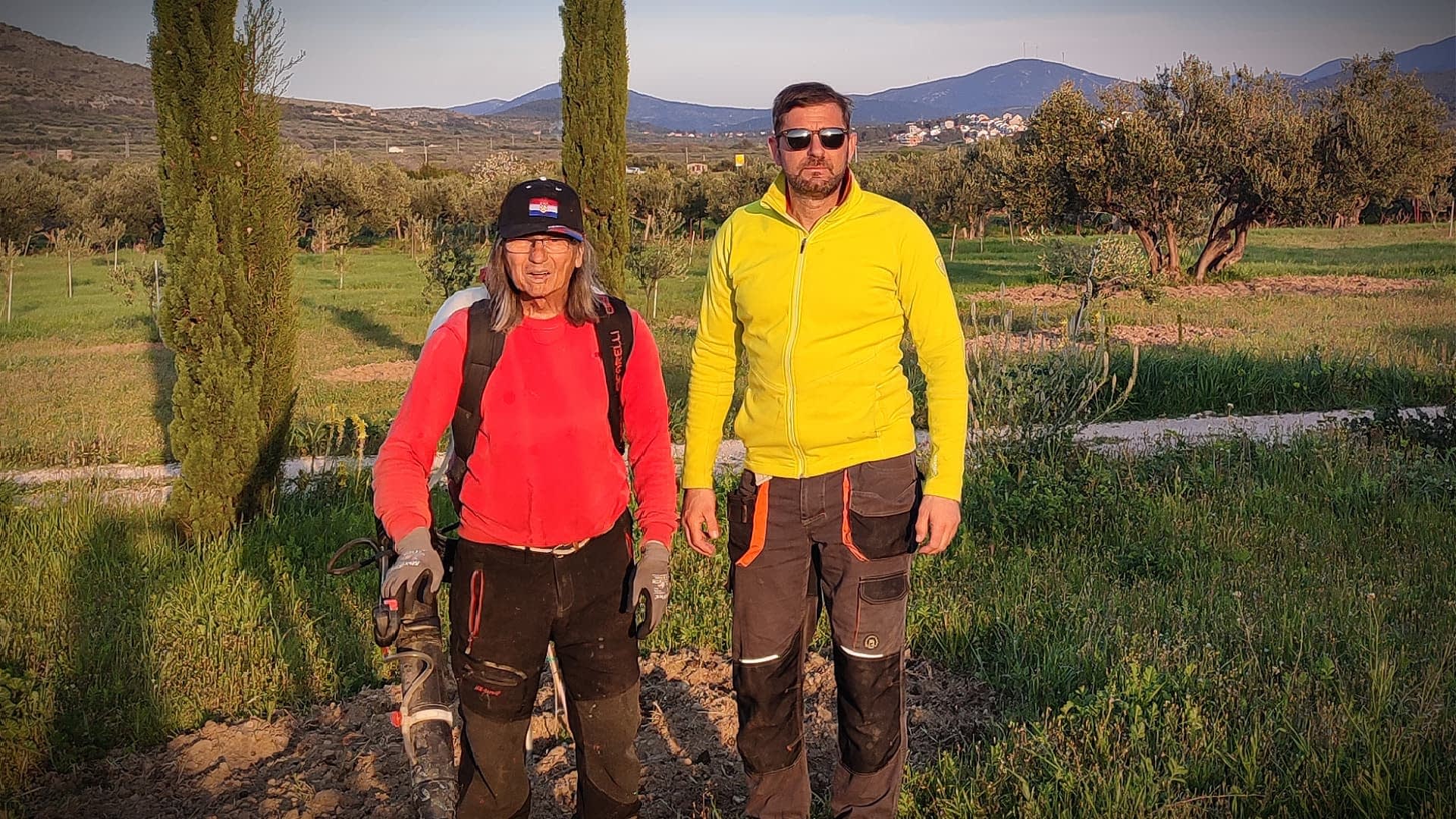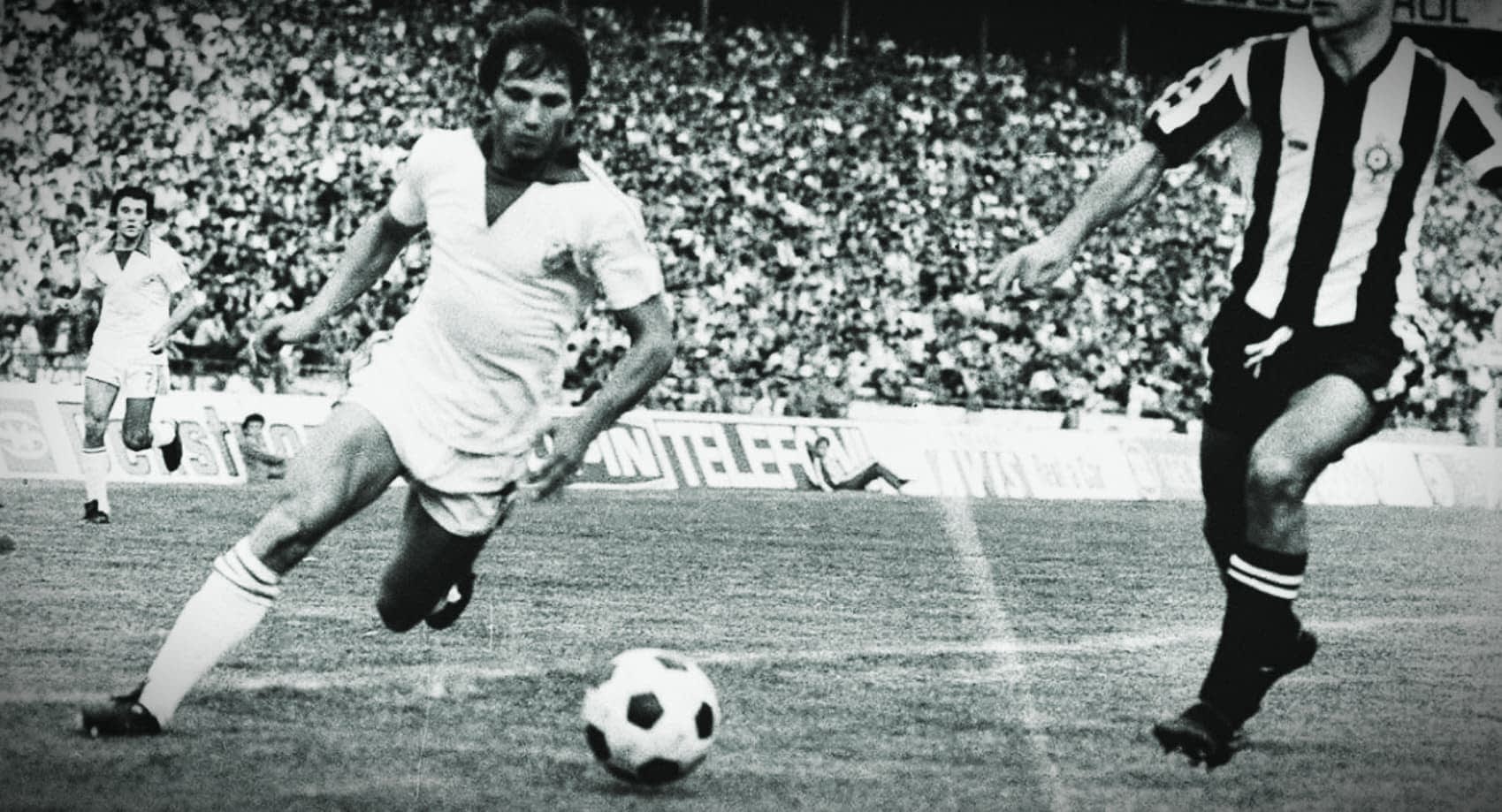Former Footballer and Lawyer Team Up to Produce High-Quality Olive Oil
After a cancer scare, retired soccer star Nikica Cukrov and his son-in-law teamed up to plant trees and make extra virgin olive oil.
 Vjeran Paić and Nikica Cukrov
Vjeran Paić and Nikica Cukrov In the heart of Dalmatia, the most prominent olive-growing region in Croatia, lies Split, home to one of the most renowned and successful Croatian football clubs, Hajduk.
The people of Dalmatia say that only Hajduk and olives live forever, and for one of the club’s former players, Nikica Cukrov, this has proven true in more ways than one.
Along with Vjeran Paić, his son-in-law and a well-known lawyer, the 65-year-old earned a Silver Award at the 2023 NYIOOC World Olive Oil Competition for Brunela, a medium blend.
See Also:Producer Profiles“Winning at the NYIOOC is a great success,” said Cukrov, who played for Hajduk and three other Croatian teams when it was part of Yugoslavia in the 1970s and 1980s and the Yugoslavian national team. “I want to win Gold at the NYIOOC, so we will continue to compete in the coming years.”
After retiring from football in the nearby city of Šibenik in 1990, Cukrov continued to live life to the fullest, indulging in the local cuisine, drink and tobacco.
However, this way of life began to take a toll on his health, and he was eventually diagnosed with throat cancer. After a successful surgical procedure, Cukrov changed his lifestyle and focused on his family’s agricultural roots.
“I come from the island of Prvić, where people have always been engaged in agriculture and fishing,” Cukrov said.

Teaming up with Paić in Kučine, near Šibenik, Cukrov started cultivating vegetables and 60 olive trees on 2.5 hectares of land owned by his son-in-law. Soon, the two planted 300 more olive trees of mostly local varieties, some of which have not yet reached full maturity.
Planting was preceded by a soil analysis at the Institute for Adriatic Crops and Karst Reclamation. It turned out that the soil was good for all Mediterranean crops, including olives.
“We respect the recommendations of the professionals and implement all ecological and agrotechnical measures, from pruning, fertilizing and protection to timely harvesting and processing of freshly picked fruits,” Paić said.
He and Nikica have been awarded several times for their oils, but this year’s Silver Award at the NYIOOC is special.
Their Brunela blend, made from the fruits of the autochthonous Oblica, Levantinka, Lastovka and Krvavica varieties, was rated highly by the team of NYIOOC judges.

“The award at the world’s largest competition is a confirmation of quality, but also an additional incentive to persist in producing even better extra virgin olive oil,” Cukrov and Paić said.
The pair do not hide that everything from soil quality to geographic positioning of the groves helps them achieve high quality. The two are currently investigating the possibility of installing irrigation into their groves.
“We are consulting with experts about what is better for our olive trees: drip irrigation or sprinkling,” they said.
They know that without irrigation, especially in the dry areas of Dalmatia, there is no successful olive growing. Dalmatia has a centuries-old olive-growing tradition but is feeling the impacts of climate change.

Nikica Cukrov, 1978
“We cannot influence them, but we can adapt to them,” Cukrov said. He and Vjeran are especially pleased that young people are increasingly interested in olive growing, restoring old, abandoned land and planting new groves.
A real olive-growing renaissance is happening in Dalmatia, confirmed by the significant number of awards earned by producers from the southern Croatian region each year at domestic and international quality competitions.
Producers from Croatia, which has a population of nearly four million people, have earned the fourth-highest with 53 awards from 128 entries at the 2023 NYIOOC.
Winners will continue to be announced through April. Cukrov and Paić expect more Croatian extra virgin olive oils to be awarded.
They proudly point out that Croatian olive growers and football players are among the best in the world.
The “fiery” football players, as they call them, finished in third at the 2022 FIFA World Cup in December 2022, defeating Brazil on their run to the semi-finals.
The country’s olive oil producers achieved the same feat at the 2022 NYIOOC. Cukrov and Paić are bullish that Croatian producers will continue to win at the NYOOC.








